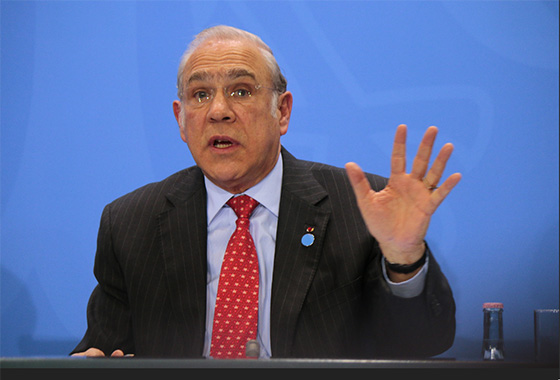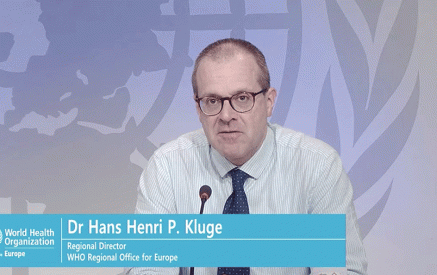OECD Secretary General Angel Gurria has appealed to the world’s nations not to stop the extra economic stimulus provided during the period of the COVID pandemic too soon.
In an exchange of views by teleconference with members of the Parliamentary Assembly’s ‘enlarged’ Standing Committee, the OECD chief said COVID-19 had unleashed “the worst social and economic crisis of our lifetimes”, with global GDP expected to fall by 4.5 per cent this year.
He urged “monetary accommodation, fiscal accommodation and structural change” to deal with the pandemic, but said that nations should not “make the same mistake” as they did during the 2008-9 economic crisis, by ending stimulus measures too early.
He also urged wealthy nations not to forget overseas assistance for poorer countries: “We have thrown trillions and trillions – 11 or 12 trillion – into COVID, and you can imagine that even just a tiny fraction of that would do a lot of good for emerging economies.”
Read also
Recovery from COVID, he said, would mean “building back better and greener”, restructuring parts of the economy, boosting energy efficiency, restoring ecosystems and creating sustainable agriculture. “We have a huge inter-generational responsibility to protect and preserve our planet for our children and grand-children,” he pointed out.
“Our homework is not yet done” on climate change and on biodiversity, said Mr Gurria, adding that only global action would suffice : “We can only change course if we act together. So let’s harness the transformative power of collective action to shape better policies for better lives.”
In a nod to PACE’s work on Artificial Intelligence, the Secretary General also highlighted a set of principles developed by the OECD – and subsequently the G20 – to ensure Artificial Intelligence systems were designed in a way which respected the rule of law, human rights, democratic values and diversity. COVID had accelerated already-rapid digital transformation, he pointed out, and AI had played a key role in almost every aspect of the crisis: “So much promise here, but also so many unknowns.”
The Secretary General also hailed “tremendous progress” on automatic exchange of tax information, pointing out that some 84 million offshore accounts, worth around 10 trillion euros, had been made transparent with transfers to national tax authorities of the names and details of their citizens’ accounts.
Concluding, Mr Gurria said that parliamentarians and policy-makers had a responsibility to “shape the post-COVID world in a way that is more inclusive, greener, and more resilient”.
PACE






















































